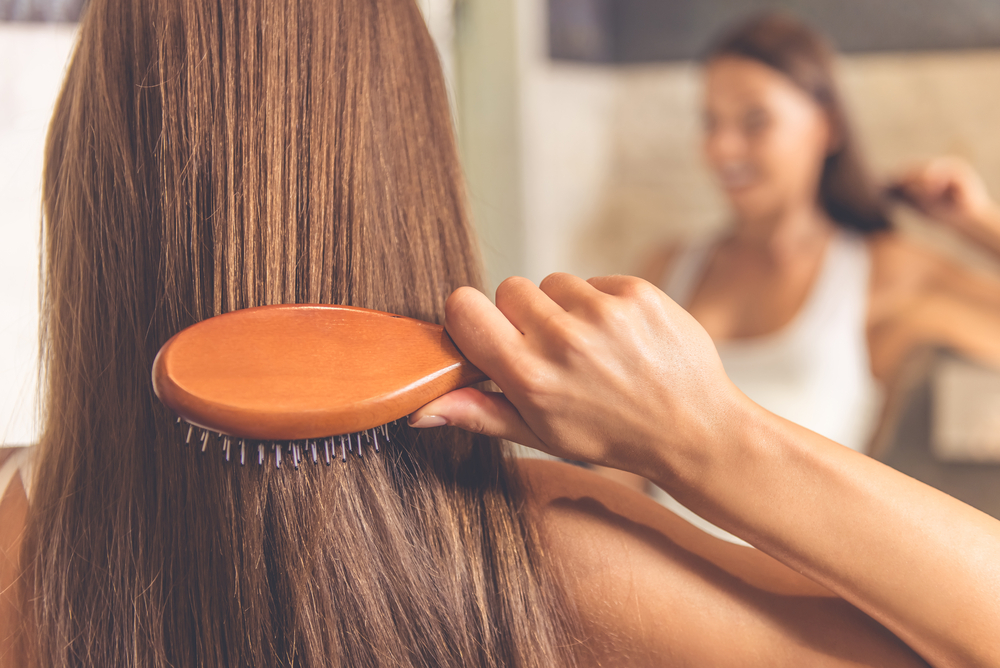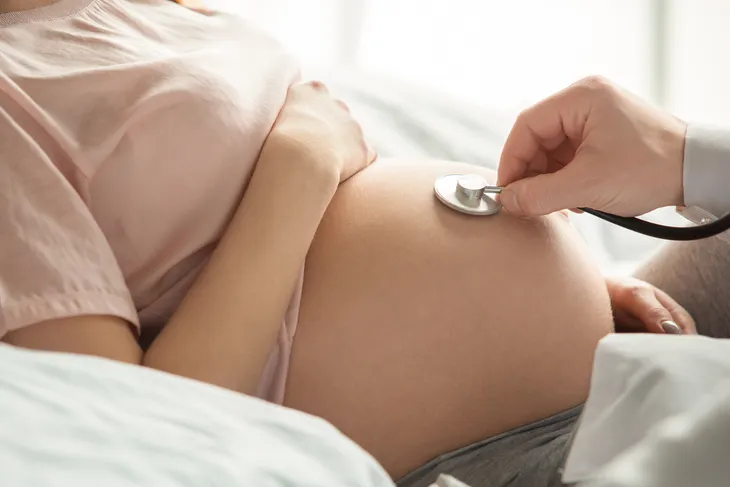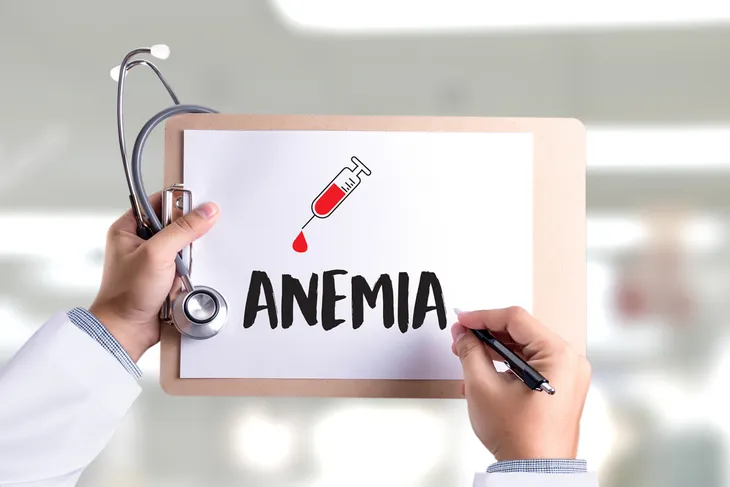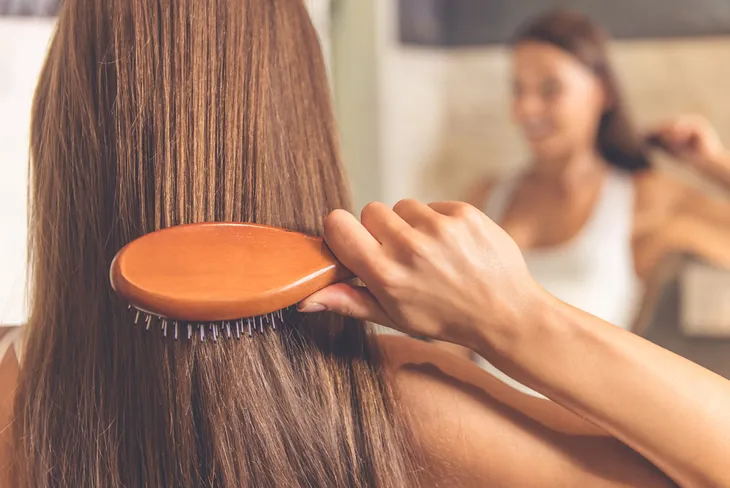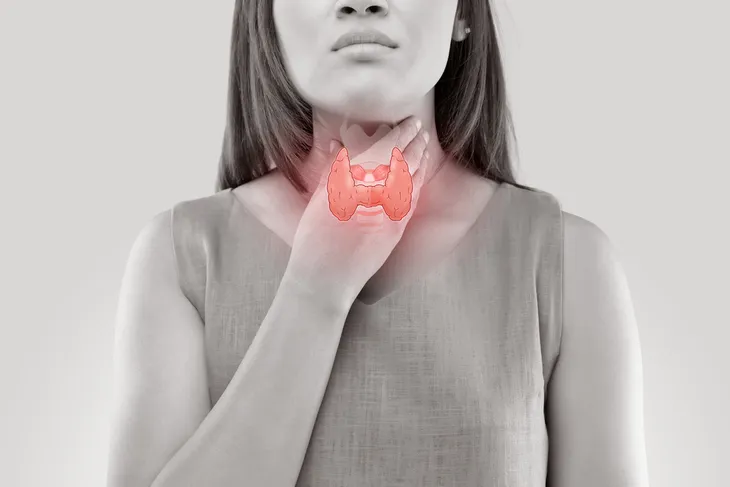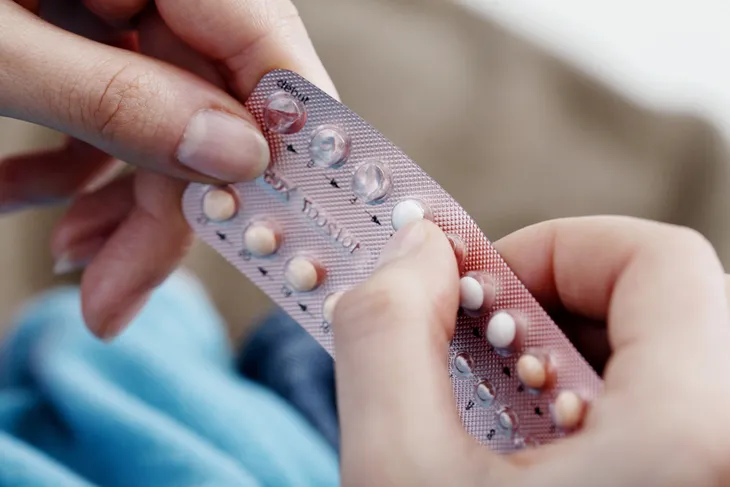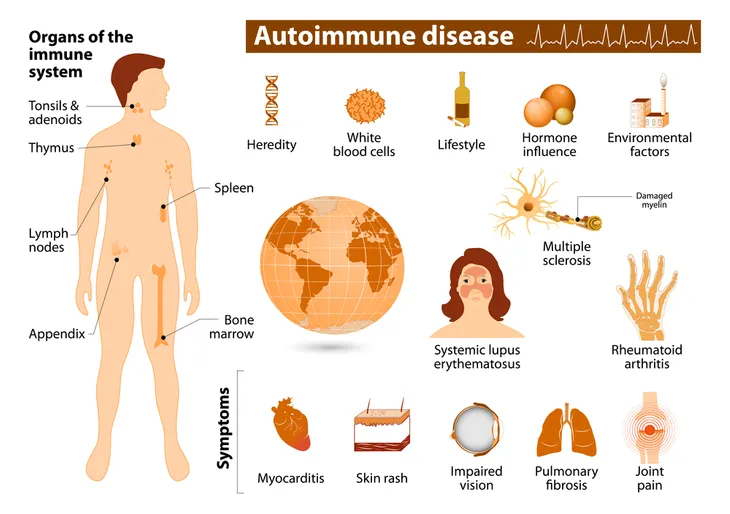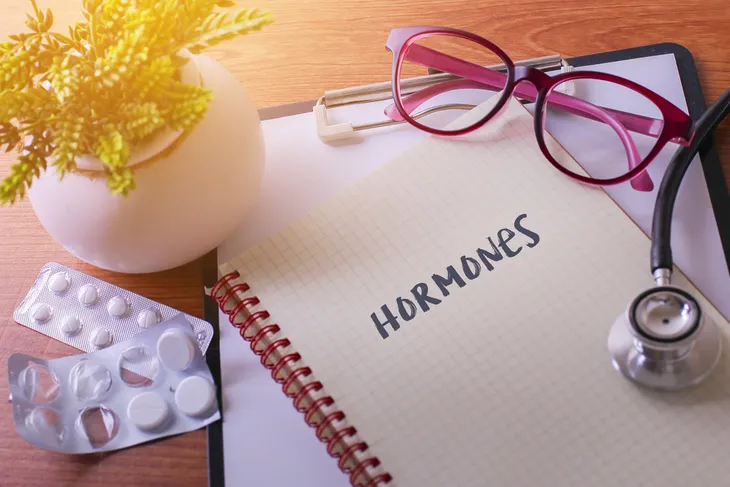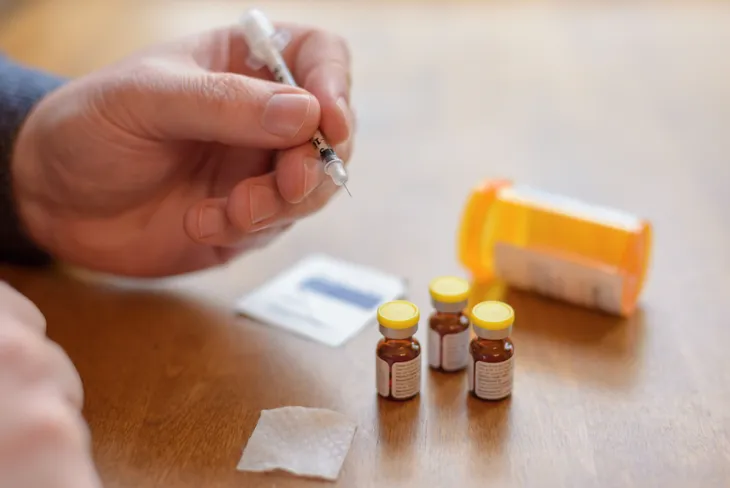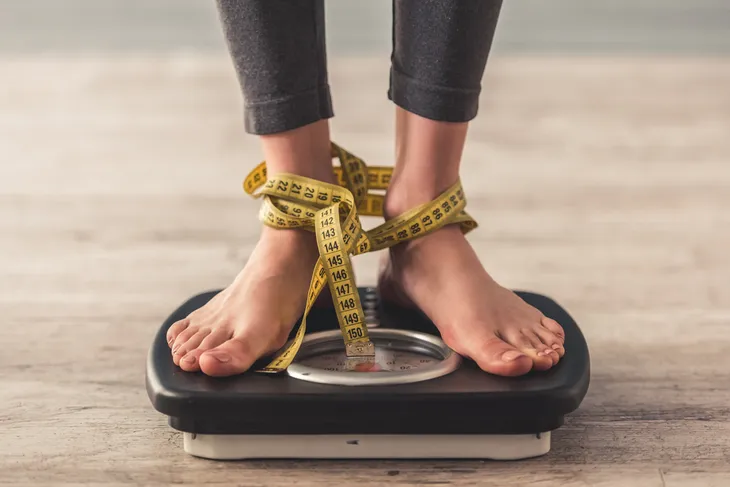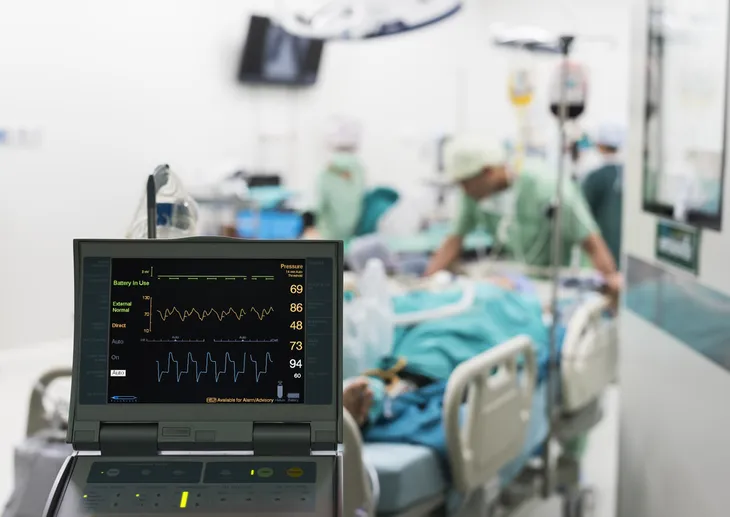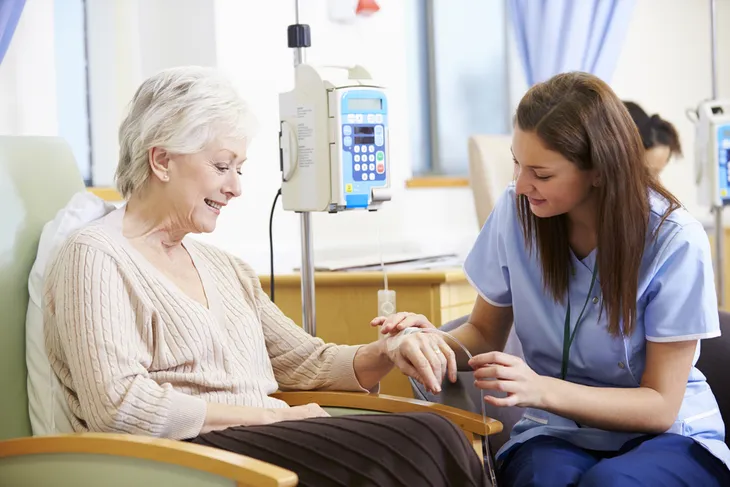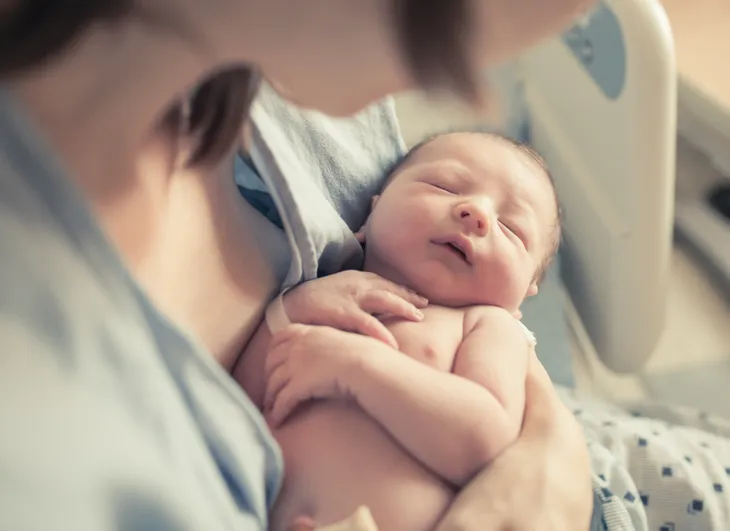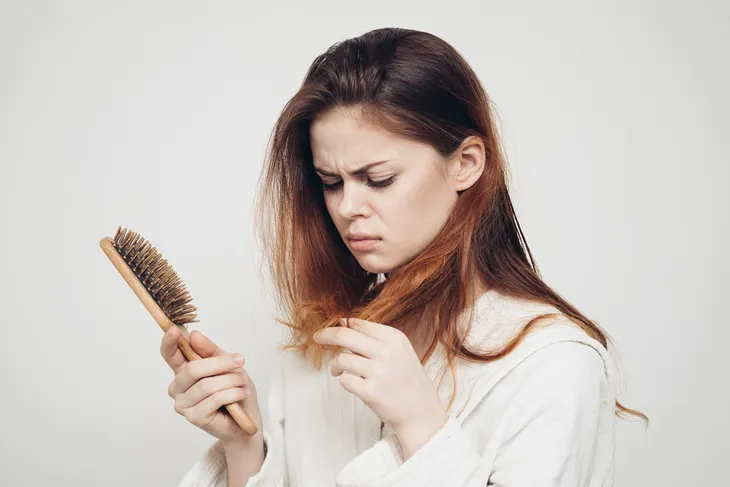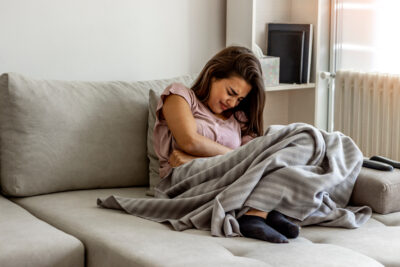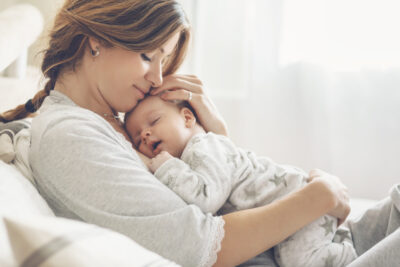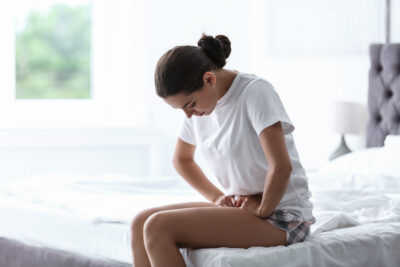According to the American Academy of Dermatology, most people lose between 50 and 100 strands of hair every day. On days when the hair is washed, it can be up to 250 strands, says WebMD, who talked to Wendy Roberts, MD, a dermatologist at a private practice in Rancho Mirage, CA. So, a little bit of hair loss in the shower and throughout the day is normal.
Widow’s peaks, bald spots, thinning hairlines, and comb overs are typical for aging men who have a family history of male pattern baldness. However, for women, hair loss or thinning locks typically indicate another underlying health issue. Most often, it’s one of these 20 health-related culprits that cause sudden hair loss in women…
1. Pregnancy
You really surrender your body over to growing and supporting new life when pregnant. If you don’t believe that statement, ask one of the gassy, hemorrhoid-suffering, migraine anguished women out there. The mix of stress and hormones can also cause temporary hair loss—both during pregnancy and after a difficult delivery.
2. Anemia
Roughly 10-percent of all adult women suffer from iron deficiency anemia, which may cause temporary hair loss. Luckily, it can be easily fixed with a daily iron supplement, which will also improve symptoms such as headaches, dragging energy levels, and low body temperature.
3. Stress or Anxiety
Physical or emotional trauma—including the death of a parent, pet, or spouse, as well as an injury, career change, relationship stress, or financial worry—can trigger sudden and temporary hair loss in women. Luckily, once the emotional or physical stress subsides, your hair will begin to grow back normally in a few months.
Why does stress cause us to lose our hair? According to Cosmopolitan, it raises androgen (male hormone) levels, which causes hair loss. “Stress may also trigger scalp problems, such as dandruff, disrupt eating habits and mess with the digestive system — all of which can have a negative impact on hair,” writes the source.
4. Eating Disorders
Unhealthy weight loss can physically traumatize the body so severely that your hair may thin and fall out. Particularly, eating disorders, such as bulimia or anorexia nervosa, cause drastic vitamin and mineral deficiencies that shock the body and deprive it of the necessary nutrients for growth and development, including your hair.
5. Protein Deficiency
If you’re a vegan, a vegetarian, or you just don’t consume adequate levels of protein, your long, thick locks may suffer the consequences. Lack of protein in your body will stifle healthy hair growth within a 3- to 6-month period. So ensure that you’re eating adequate substitutes (i.e., nuts and beans), if you’re forgoing animal proteins.
6. Hypothyroidism
An underactive thyroid gland (hypothyroidism) will wreak havoc on your body—resulting in hair loss, raging hormones, weight gains, and energy drain. Hypothyroidism limits the hormones necessary for metabolism, hair growth, and other major body functions.
“The thyroid gland helps to regulate the body’s metabolism by controlling the production of proteins and tissue use of oxygen. Any thyroid imbalance can therefore affect hair follicles,” says Anabel Kingsley, a leading trichologist at the Philip Kingsley Clinic in London, to Cosmopolitan. The source also notes that untreated hypothyroidism can lead into anemia, which can also cause hair loss.
7. Birth Control Pills
Messing with female hormone levels is never a pretty sight. Like pregnant and menopausal women, those who stop taking birth control pills can suffer sudden hair loss, or telogen effluvium, a condition caused by hormonal imbalance that shrinks hair follicles.
Even if you haven’t stopped taking birth controls pills and simply changed to a different hormonal type of contraception, it can lead to hair loss. “Whether you’re just starting it, discontinuing it, or changing brands, your body can react by causing the hair to go into an increased shedding mode,” says Francesca Fusco, MD, dermatologist at Wexler Dermatology in NYC and Assistant Clinical Professor of Dermatology at Mount Sinai, to SELF.
8. Steroid Use
Both men and women athletes can suffer the consequences of hair loss due to anabolic steroid abuse. However, hair should grow back in time once the drugs leave your system.
9. Autoimmune Conditions
Many autoimmune conditions, such as lupus or Crohn’s disease, will result in immune cells that mistakenly attack the body and cause issues such as permanent hair loss or bald patches.
“An autoimmune condition makes the body recognize its own hair follicles as foreign and it attacks them and makes the hair fall out,” says Dr. Fusco to SELF. Some common autoimmune conditions that cause hair loss are lupus, rheumatoid arthritis, thyroid disease, certain types of anemia, and alopecia areata.
10. Hormone Imbalance
When in doubt, blame it on the hormones! Just kidding…a hormonal balance can actually cause hair loss in women, along with a number of other annoying side effects. Whenever our hormones are out of whack, it can cause all kinds of such effects, such as weight gain, acne, and hair loss.
“Hormones play a huge role in regulating the hair growth cycle,” says Kingsley when talking to Cosmopolitan. “[Estrogens] (female hormones) are ‘hair friendly’ and help to keep hairs in their growth phase for the optimal length of time. Androgens (male hormones) are not very hair friendly, and can shorten the hair growth cycle,” reports Kingsley.
Endocrine disorders, such as polycystic ovarian syndrome can cause an excess of androgens, which can then cause hair loss. “The extent of this is often down to genes. If you have a genetic predisposition to follicle sensitivity, a hormonal balance can affect your hair more than it would someone who does not have a predisposition,” says Kingsley.
11. Vitamin B12 Deficiency
Just as iron deficiency can cause hair loss in women, so can vitamin B12 deficiency. It will also cause fatigue and an overall lack of energy. So if this sounds familiar, then this might be the problem.
“Vitamin B12 deficiency often causes hair loss as it can affect the health of red blood cells, which carry oxygen to your tissues,” says Kingsley to Cosmopolitan. “It’s most common in vegans as you only obtain B12 through animal proteins.” If you think you’re suffering from a lack of vitamin B12, try eating any of the foods on this list of Healthy Foods That Pack a Vitamin B12 Boost!
12. Dramatic Weight Loss
Our body can have a similar reaction to physical stress as it would to emotional stress. Physical stress can include things like dramatic weight loss. Anabel Kingsley told Cosmopolitan, “[6- to 12-weeks] after dramatic weight loss, whether it be intentional or unintentional, hair commonly comes out in excess.”
“While our hair is incredibly important to us psychologically, physiologically it is non-essential; we could survive without it with no detriment to our physical health. This means that any nutritional deficiency often first shows up in our hair,” says Kingsley. This just reinforces the fact that instead of crash dieting or losing weight in unhealthy ways, people should try living a more well-rounded and balanced lifestyle in order to avoid unforeseen side effects like hair loss.
13. Age
There are a lot of unfortunate things that come with aging, such as wrinkles, menopause, and weight gain. It’s pretty clear that as you age, your body does too. In some cases, it might happen sooner than we’d like! The best way to avoid this or slow it down is to live a healthy lifestyle by exercising regularly and eating healthy.
Unfortunately, it will catch up with us at some point and hair loss or thinning is just a natural part of aging. “Hair loss becomes more prevalent leading up to and after menopause […] it’s important to realize that our hair ages, and as we get older, hair naturally gets finer. It’s a totally normal part of the aging process,” says Kingsley to Cosmopolitan.
14. Dandruff or Scalp Psoriasis
Dandruff is not only uncomfortable, as it causes us to itch and scratch our head constantly, but can also be embarrassing! To make matters worse, all that itching and scratching can cause us to shed a few more hairs than normal. Luckily, dandruff can be easily treated with zinc pyrithione shampoo, says Dr. Fusco to SELF.
“Consistency is the trick,” says Dr. Fusco. Find a shampoo or conditioner that helps treat it (she recommends the Clear Complete Scalp Care Anti-Dandruff System) and use it on a regular basis. If you’re suffering from scalp psoriasis, consult with a dermatologist to help treat and restore your scalp back to normal.
15. Surgery
Similar to stress, WebMD points out that people can start to lose their hair after suffering some kind of intense physical trauma. This could even include surgery. “Someone can have surgery and be just fine and then two weeks later their hair starts falling out,” says Wendy Roberts, MD, to WebMD. “It can be very scary when it starts falling out in big clumps.”
Cleveland Clinic also includes extreme physical shock or stress as a common cause of hair loss in women. In addition to surgery, it might include giving birth, rapid weight loss, or certain illnesses. These might cause more hair loss than normal, even when in the resting phase. If this is the case, the hair should grow back over time.
16. Medical Therapies and Toxic Substances
A lot of us associate chemotherapy with hair loss, and while that isn’t always the case, it can cause women to lose their hair prematurely. “Chemotherapy, certain other drugs, and radiation treatments can prompt hair loss, mainly in the growth phase. Hair loss can strike suddenly, anywhere in the body. It is typically temporary (unless the follicles are damaged),” writes the Cleveland Clinic.
17. Childbirth
We’ve talked about how emotional stress and anxiety can cause hair loss and even some physical trauma, such as surgery or weight loss. But did you know that a physical trauma such as childbirth can also cause hair loss in women?
SELF says that pregnancy can sometimes cause women’s hair to grow a lot faster, because they are experiencing a surge in hormones. But once they give birth and their estrogen levels return back to normal, their hair will go back to normal and all that extra hair might start to shed. Some women will experience mild shedding, while others will notice it a lot more — it varies on a person-by-person basis.
18. Too Much Vitamin A
We’ve talked a lot of about lack of vitamins or nutrients, but Health.com explains that someone who’s getting too much vitamin A can also experience hair loss. The American Academy of Dermatology says that too much vitamin A, especially in the form of supplements or medications, can trigger hair loss.
Health.com writes, “The daily value for vitamin A is 5,000 international units (IU) per day for adults and kids over age 4; supplements can contain 2,500 to 10,000 IU.” You should consult with a doctor before taking new supplements. If this is the cause of your hair loss, it is reversible. Once the vitamin A is stopped, your hair should grow again normally.
19. Certain Medications
The medications we take for any type of health condition or illness can have all kinds of side effects — some more than others. If you notice that you’re beginning to lose more hair than normal after you’ve just started a new medication, it could be the culprit. “Medications can cause chronic shedding,” says Bethanee Schlosser, MD, Assistant Professor of Dermatology and Director of the Women’s Skin Health Program for Northwestern Medicine, to SELF.
SELF goes on to explain that the most common medications known for causing hair loss are blood pressure medications, antidepressants, and HIV medications. Discuss these changes with your doctor in order to find the right medication for you.
20. Alopecia
Even though this one is last on our list, it’s actually the most common cause of hair loss in women. According to Healthline, there are a variety of different types of alopecia (which means hair loss), but the most common cause of female pattern baldness or hair loss is androgenetic alopecia.
The cause of this condition is genetics (or family history). So most women will already know if they are prone to hair loss, because it will have been passed down from someone else in their family. “It’s the leading cause of hair loss in women and generally begins between the ages of 12 and 40 years old,” writes the source. “While men tend to notice balding as a receding hairline and specific bald spots, women’s hair loss appears more as overall thinning,” says the source.
